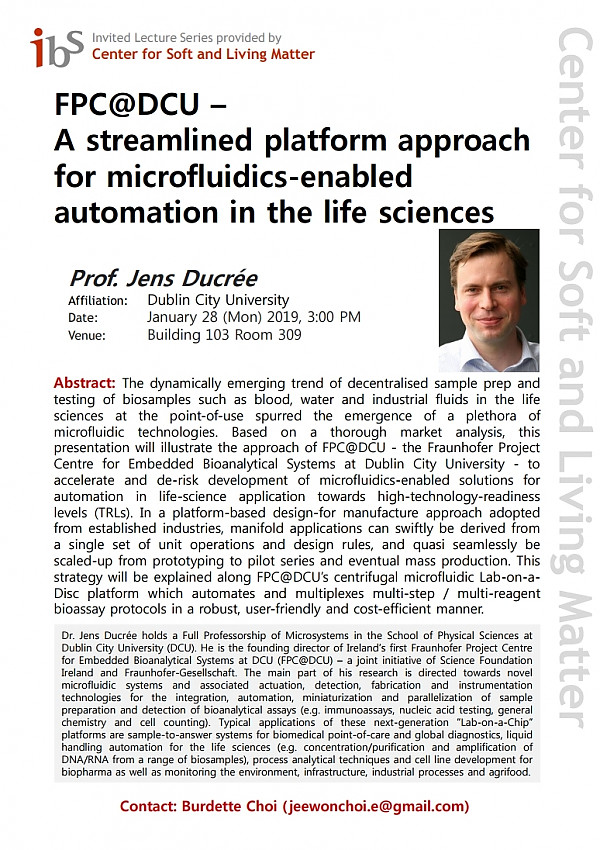Seminars & Speakers
Warning: preg_replace(): The /e modifier is no longer supported, use preg_replace_callback instead in /home/seminars/www/g4s/bbs/view.php on line 125
게시물 정보
글제목 :
FPC@DCU – A streamlined platform approach for microfluidics-enabled automation in the life sciences
추가 정보 영역
| Speaker | Prof. Jens Ducrée |
| Affiliation | Dublin City University |
| URL | Link |
| Date | January 28, 2019 |
| Time | 3:00 pm |
| Venue | Building 103 Room 309 |
| Sponsor | IBS-Center for Soft and Living Matter |
| Host | Prof. Yoon-Kyoung Cho |
| Contact | jeewonchoi.e@gmail.com |
| Phone | 5527 |
| Attach |
New_Seminar_announcement_Ducrée.pdf_page_1.jpg
(648.5K)

|
Dr. Jens Ducrée holds a Full Professorship of Microsystems in the School of Physical Sciences at Dublin City University (DCU). He is the founding director of Ireland’s first Fraunhofer Project Centre for Embedded Bioanalytical Systems at DCU (FPC@DCU) – a joint initiative of Science Foundation Ireland and Fraunhofer-Gesellschaft. The main part of his research is directed towards novel microfluidic systems and associated actuation, detection, fabrication and instrumentation technologies for the integration, automation, miniaturization and parallelization of sample preparation and detection of bioanalytical assays (e.g. immunoassays, nucleic acid testing, general chemistry and cell counting). Typical applications of these next-generation “Lab-on-a-Chip” platforms are sample-to-answer systems for biomedical point-of-care and global diagnostics, liquid handling automation for the life sciences (e.g. concentration/purification and amplification of DNA/RNA from a range of biosamples), process analytical techniques and cell line development for biopharma as well as monitoring the environment, infrastructure, industrial processes and agrifood.








